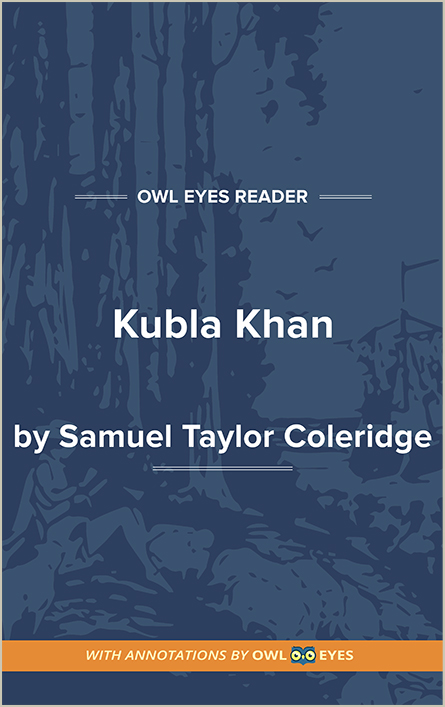Analysis Pages
Facts in Kubla Khan
Facts Examples in Kubla Khan:
Kubla Khan
🔒"Singing of Mount Abora...." See in text (Kubla Khan)
"Ancestral voices prophesying war!..." See in text (Kubla Khan)
"chaffy grain beneath the thresher's flail:..." See in text (Kubla Khan)
"the sacred river..." See in text (Kubla Khan)

